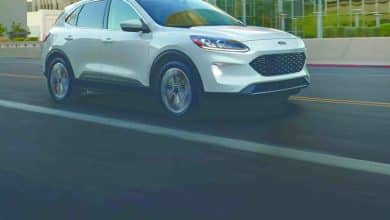
While it is not easy for a new vehicle manufacturer to generate profits, it is not easier for an already established brand. You have to make colossal investments, and the cost price of an electric vehicle is higher than that of a gasoline model, especially because of the battery.
We recently learned that, despite good market penetration, especially in California, Rivian loses nearly US$33,000 on each vehicle sold. The same goes for Lucid, which is at the top of the range with its Air; the manufacturer is suffering titanic losses of $338,000 on each vehicle sold. This figure is obtained by taking the company’s profits or losses and dividing them by the number of vehicles sold.

This time it is Ford which announced that it will reduce its investments in electric vehicles following a 3e quarter in the red with losses of $36,000 on each electric vehicle sold during the period.
Losses of 1.3 billion
In a financial statement, Ford admitted that its Model e division — which focuses on electric vehicles and future mobility — recorded losses of $1.3 billion between July and September 2023. The automaker says this significant loss is due to “continued investments in Next-generation EVs and challenging market dynamics. »

More vehicles sold, but rising labor costs
This significant loss comes despite an increase in sales of electric vehicles at Ford which reached a total of 20,962. Sales of the Mustang Mach-E increased by 42.5% and reached a total of 14,824 copies. Unfortunately, sales of the F-150 Lightning have plummeted. Ford recently reduced production of its electric pickup truck, but cited other issues behind the decision.
The auto giant will also face higher labor costs stemming from a landmark deal with the auto union. According to Ford, the increase will represent $850 to $900 per vehicle.
Chief executive Jim Farley said the company would slow the rollout of loss-making EVs. She will redirect investment toward Ford’s commercial vehicle unit and set out plans to quadruple sales of gasoline/electric hybrid vehicles over the next five years.

Our opinion
If you are wondering why some interesting models suddenly disappear from the market despite their quality and sales level, one of the main reasons is profitability. The best example is the Chevrolet Volt, an interesting car, but far too complex and expensive for GM to produce.












